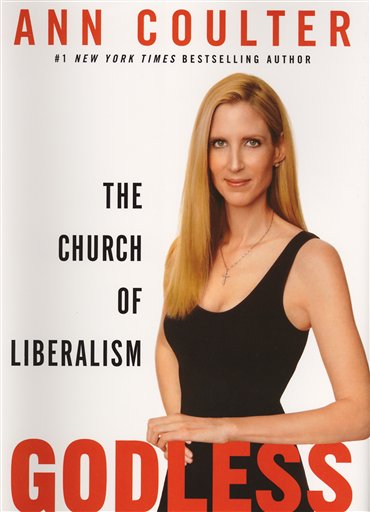If expanding the definition of marriage is all about inclusiveness, then why arbitrarily limit it to TWO?
Well of coarse that's not true, I know plenty of Californians that were married in a church during a religious ceremony. But if you are correct that "religous beliefs should have no part in the legislation of state laws," does that mean that anti-discrimination laws should be used against religious institutions which discriminate on whom they would marry or that fail to recognize same-sex marriages? Remember, we have people here arguing that opposition to gay marriage is no different than opposition to interracial marriage.
Based on which part of the California constitution?
Yet, that is what the people of California may well do this Fall. Their voice should count for something, no?
So there are "religious" marriages in CA. Someone will sue churches sooner or later and you know it. It's what Americans do.
In the California decision the court itself noted that the state's domestic-partnership law already gave gay couples "virtually all of the legal rights and responsibilities accorded married couples under California law." So we really aren't talking about equal protection especially since gay men and lesbians in California already enjoy the right to marry; the same right, no more no less, as any other adult in that state. What they demand, and what the California supreme court has now "discovered" is a new right. A right not enumerated in either the California or U.S. constitution. The right to marry someone of your sex. A right to define marriage as the individual parties see fit.
We have procedures to amend constitutions if marriage must be a right and we also have elected bodies to write new laws defining marriage, but we do live in a democracy so what we don't need is courts making up stuff.
First, the whole polygamy thing is one of the things conservatives consistently love to throw into this debate, yet that is NOT what the decision in California was about. The Supreme Court's take on it was in a nutshell, "Is it Constitutional that Domestic Partnerships, which offer all of the same legal benefits of marriage should exist for Gays and Lesbians, yet Marriage should only be reserved for heterosexual unions". It was their decision that it is not. the state Constitution protects a fundamental "right to marry" that extends equally to same-sex couples. They declared that the state Constitution protects a fundamental "right to marry" that extends equally to same-sex couples. And they went on to say any law that discriminates on the basis of sexual orientation (including the right to marry) will from this point on be constitutionally suspect in California in the same way as laws that discriminate by race or gender.
So really, the argument as it pertains to California has nothing to do with Polygamy...if you want to debate polygamy, that's a separate issue. What this is about is the (former) 2nd class citizenry of Gays and Lesbians as far as the right to marriage in the State of California. PERIOD.
Yes, you can have a religous marriage in California. And you can have a court-style marriage in California (I can perform both), but they are both bound by the legal contract that is called a MARRIAGE CERTIFICATE, which is NOT a religous document. It's a LEGAL document, and the right to marry in California is a matter of LAW, not RELIGION.
Furthermore, the Court did NOT make stuff up. What it found is that those that attempted to prohbit same sex couples from marriage were doing so against the State Constitution. You can AMEND the state constitution if you get enough votes to do so, but the way the Supreme Court has ruled, if it looks like your trying to discriminate against Gays and Lesbians (Marriage for hetero couples, Domestic Partnership for homos), then you will be found in violation of the state's constitution.
I implore you to read the ruling, in it's entirety, which can be found here:
http://www.law.berkeley.edu/library/S147999.pdf
No one is going to sue a church. They do not need to abide by those laws. What happens is people end up going into churches and shooting up the ones that believe gays should be treated equally. That is what people do after all. It's what they did in Tennessee.
Now, should the people's voice count? If Atheists became the majority in California, and they wanted to outlaw Christianity, and they got a prop on the state ballot and it passed, well, should the people's voice count?
If the Latinos, who I think already DO make up the majority of the State of California, wanted to make Spanish the official language, and by some miracle of God (or the Devil depending on your beliefs), got it passed and everyone had to learn Spanish, well, the people spoke right?
The people once spoke saying women should not vote.
The people once spoke saying colored should not sit with whites.
The people once spoke saying many many things.
The People are quite often wrong.




 Loving vs. Virginia and Brown vs. Topeka Board of Ed were complete bullshit.
Loving vs. Virginia and Brown vs. Topeka Board of Ed were complete bullshit. 